- Home
- Tim Lebbon
The Silence Page 5
The Silence Read online
Page 5
One of the kids put their hand up and spoke, and Rob signed for me.
“Like with Aids?”
Mr Bellamy nodded. “Just like with Aids. Some of what are known as the hot viruses, too. Ebola, Marburg. Roads were built deep into the wilds of Africa; lifelines for many, but routes along which diseases and contagion could travel much, much faster than nature itself could spread them. Isolated valleys were explored and plundered.” He stopped again, trying to smile to see away his seriousness. But the smile only made it worse. “I always worried,” he said again.
“So what do you think has happened?” I asked.
Mr Bellamy looked at me, and this time he spoke clearly, for me, so that I saw the answer on his own lips. “We’ll find out soon.”
* * *
My second lesson was art, and Lucy and I were in the school’s art department experimenting with materials. Rob had gone off to ICT. Halfway through the lesson the door opened and the teacher was called out. She left in a hurry, giving instructions for the pupils to continue cutting and preparing material for the masks we were working on.
“What was that?” I asked.
“Mr Rosen came in and said, ‘Sue, you should come and see this’,” Lucy said.
I looked around at the small group. Most of them were already working again; a couple sat back and looked around, vaguely disinterested.
“We should, too,” I said. “Come on.”
As I stood, Lucy grabbed my arm. “What are you doing?”
“Seeing what’s happening.” I walked to the door, not looking back because I didn’t want to glimpse Lucy’s disapproving look.
I opened the door and sensed Lucy behind me. I smiled. I knew that my friend could not resist a mystery.
In the corridor we moved quickly towards the central staircase, passing art displays, noticeboards, and a couple of closed classroom doors. I walked like I was meant to be there. Sneak along, crouch down, and we were sure to be seen.
At the staircase I paused and turned to Lucy, shrugging. Lucy listened, then pointed down. We descended, and several stairs up from the ground floor we saw three teachers hurrying across the vestibule and through a pair of double doors. Lucy and I froze, waiting to be caught. But the teachers either didn’t see us, or didn’t register our presence.
“What’s going on?” I whispered.
Lucy shrugged. “Come on. I think they’re all going to the staffroom.”
“Well we won’t be able to get in,” I said.
Lucy only smiled and waved me on. We crossed the vestibule and passed through the same double doors as the teachers, entering the administration wing of the school. Pupils were not ordinarily allowed in there, but that gave us an implied authority—if we were seen, whoever saw us would more than likely assume that we had permission to be there.
Lucy led the way past the staffroom, then she glanced back and forth along the short corridor and opened a door. “Cleaning cupboard,” she signed. “Come on.”
“How do you know about—?” I asked, but Lucy quickly put her finger to her lips, frowning. I must have been talking louder than I’d intended.
“Izzy told me about it,” she mouthed. She ushered me inside the cupboard and closed the door.
In the darkness, I felt closed in. I couldn’t see my friend, couldn’t sign to her. Isolation smothered us both. I hated the dark, but not for the reasons that most people disliked it.
My friend moved, then a soft light bathed the room. Lucy was standing on a fixed shelving unit, and in the wall before her a plastic air vent spilled light into the cramped cupboard. She beckoned me to climb up next to her, pressed her face close to the vent… and froze.
Lucy’s mouth fell open.
What’s she seeing? I wondered. And for just a few seconds, I didn’t want to know.
I climbed up carefully next to her and, heads pressed together, we looked through the vent into the staffroom.
There was a big TV in there, fixed to the wall. The room itself was quite small, and it was filled with teachers. Standing room only. They were all watching the screen.
“Bucharest Burns” said the caption below the shocking, flame-filled, unbelievable image. The view was from a handheld camera somewhere high in the city, a hillside or more likely the rooftop of a tall building. The image juddered a little, but whoever held the camera knew what they were doing. They panned slowly left and right. Flames flickered all across the city. There were many smaller fires, conflagrations consuming single buildings or roofs, sending leaning columns of smoke to the sky. Two larger fires were prominent, one quite close to the observer and the other much further away. The way the flames boiled and rolled was testament to their fury, and black oily smoke billowed skyward. The closer fire was centred in a tall, blocky structure—a hotel or a shopping centre, perhaps—and every opening was a window into hell. Blazing shapes tumbled. A wall collapsed, seeming to splash flames across the street and out of sight against another building. The fire had tides and swells, pulsing away from its source and seeding itself elsewhere.
Cars screamed along streets. People ran.
The camera suddenly shifted, blurring the picture and making me dizzy. What the hell’s going on? I thought, closing my eyes as I gathered myself. When I looked again the camera had steadied, but now it followed a haze of smoke across the Bucharest rooftops. It was a distant cloud, huge, and where it passed it seemed to steal colour and shape from the buildings and landscape around it.
Lucy’s hand closed on my arm, nails digging in.
“What is it?” I asked. Lucy could hear something—a voice on the TV, newscaster or perhaps the person doing the filming.
An explosion bloomed in the distance, so slow-moving that it must have been huge, monstrous. But the camera still followed the strange cloud as it shifted left… and right… drifting against the breeze that drove the smoke of Bucharest’s destruction at an angle to the sky.
Lucy looked panicked. Her eyes were wide, mouth open, and she didn’t seem to notice how tightly she was clasping my arm.
I prised her fingers away and jumped down from the shelf. Lucy didn’t move. She just kept staring at the terrible images, and listening to something worse.
I stumbled over a box as I went for the door, reaching out and clasping at shelving to prevent myself from falling. I banged my shin and groaned, then glanced back at Lucy. My friend had turned to look at me, but bathed in weak light from the air vent, her face still looked the same.
“What is it?” I asked, louder than before and more desperate, not caring whether they were heard or not.
“Ally,” Lucy mouthed. I found the door and tugged it open, dashing into the corridor, running to the staffroom door and pushing it open.
It was horrible. There were at least thirty teachers in there, and only a few glanced at me. They seemed to not register my presence, quickly turning to the TV again. Miss Hughes motioned me in, held my hand, and we turned towards the screen. She wants me to see, I thought. We’re not teachers and pupils any more. The disconcerting idea came from nowhere.
I could only see what I’d seen before, but in more detail. The burning buildings, the chaos in the streets. The continuing massive explosions in the distance—a fuel plant or power station, perhaps. And that vast cloud followed by the camera as it passed back and forth above the burning city, as if it had a strange, unknowable consciousness of its own.
Miss Hughes picked up the TV remote control. Another teacher seemed to argue with her, words that I could not see. Then my form teacher turned on the subtitles.
I started to understand just how terrible everything was.
4
The Central University Library is ablaze. Everything we have learnt, all the hope that building personified, up in flames. A million burning pages flutter down. Between them fly the terrible, unknowable beasts that cause this horror. They are circling. They are listening for me. Even the tapping of these keys make me fear for my life.
Cornelia, F
acebook, Friday, 18 November 2016
Huw cursed his laziness. If ever he wanted a radio in the car it was now. But the aerial had been lost over a year ago, either stolen or perhaps knocked off in a car wash, and he hadn’t bothered replacing it, though he’d always meant to. Just one more thing at the back of his mind that never got done.
He tried it anyway, scanning across channels in the hope that he’d find one clear enough even with only the aerial’s stub to catch the signal. There was nothing but white noise and occasional haunting, distorted voices.
Settling in for a quiet drive, he nursed his phone between his legs. He supposed he could have accessed a radio through the phone, but he wasn’t sure he’d get enough bandwidth on the move. His priority now was to get home. Once there with his family he could face the news again.
He’d called Kelly once more before leaving, told her that he was on his way home, and this time she hadn’t tried to dissuade him. Maybe she’d realised that once his mind was made up it was very difficult to change it. Or perhaps she actually wanted him home. The kids had gone to school, but the day no longer felt like a normal day. “At least it’s a long way away,” she’d said again, and he hadn’t even replied.
He remembered where he’d been on 9/11. It was several years before he’d started his own company, and sitting at his desk at work he’d been reading those shocking, unbelievable, almost surreal news reports on the Internet. The connection had been poor, but the breaking news had come through well enough. He’d kept glancing at the screen and then out of the office window, through which he could see the sprawl of the town sprouting generous amounts of green, no building above five storeys high, distant hills bathed in inviting sunlight. It had all felt so unreal. His boss had wandered by and watched for a while, then returned to his office, apparently unconcerned. Another colleague had viewed the image of the first plane striking the North Tower, repeated again and again, and had pronounced it a special effect. Everyone had had their own forms of disbelief that day.
Huw had felt the significance of the event. He’d called his mother, told her America was under attack. It had not felt like an exaggeration. His friends at the desks around him, already still, had fallen silent at his words. They’d carried weight, and everyone had felt them land.
Today was the same. Fifteen years later, once again the world was gathered around TVs or computers watching the news unfold. This was another world-changing event.
He didn’t understand how others could not perceive this. Upon leaving the hotel he’d bumped into the two men, preparing their bikes in the hotel’s front garden, laughing and joking, efficient and experienced. He’d expressed disbelief that they were still going on their ride, and they’d looked at him as if he was out of his mind. They didn’t even reply. Perhaps they didn’t know what he meant.
The A30 out of Cornwall was busier than usual, but then he rarely travelled on a Friday morning. Don’t travel anywhere in Britain on a Friday, his dad used to say, and for years Huw had been going against his father’s advice. He’d come to appreciate those words when long traffic jams held him up and delayed his arrival home until midnight, or even later. But when his company was working away, it was a choice between that and returning home on Saturday morning. And he relished his precious weekends.
This weekend they’d planned to go for a long walk. Kelly liked the Skirrid, a sharp ridge of a hill sticking out of their local Monmouthshire countryside like a giant’s spine. The kids loved it too, Jude running on ahead and exploring, Ally pausing now and then to take photos of the landscape and her family. Otis would go mad, pounding back and forth between them, herding his family and being just as daft as a big dog like him could be. A good couple of hours, and then they’d return home to the beef casserole left stewing all day in the slow cooker. After that they might watch a movie together. Their family life was chaotic—his work keeping him away from home, Kelly’s job stressing her more than it should, Ally’s monthly stopover at the school for the deaf, her netball, Jude’s rugby matches and swimming lessons—and it was the simplest times with his family that pleased him most.
He hoped they could still go. He didn’t see why not. After all, Moldova was a long way away.
He thought of those images he’d seen, and he could not shake the intense fear they’d inspired.
As he approached Exeter he considered stopping for a piss. It was still a little over two hours home from here, probably longer today with the heavier traffic. A coffee and comfort stop was probably a good idea.
And there was Max.
Huw had already heard his phone pinging as missed calls came in, and then texts. He’d glanced at the screen and seen Max’s name, and although he’d sent an email, he knew that he owed his client an explanation. He did not relish the thought of that call. But at the same time it felt so insignificant that he begrudged the time it would take.
He swung off the motorway into the large Exeter services car park.
Not every missed call was from Max. Kelly had tried him at 9.20, 9.40, and 10.33. There were no texts or emails from her, and he thought if it had been urgent she’d have texted him, demanding that he call as soon as possible. Yet something had made her try him three times. A need to talk, even without urgency.
He called her back. She snatched up the phone after one ring.
“Have you seen?” she asked.
“What?”
“Bucharest.” Her voice broke, tinged with fear.
“What about Bucharest?” he asked, and his stomach dropped; his heart seemed to thump harder as if keen to escape.
“It’s horrible, Huw,” she said, and now he could hear the tears in her voice. “There are thousands dead, they’re saying maybe tens of thousands. The city’s burning. And those things… those things from the cave, that thing last night, there are so many of them. They’re calling them viespi—that means wasps, but they’re not, they’re… They’re killing everything.”
They talked a little more, and then Huw ran into the service station to use the toilet. A group of young men stood laughing just outside the main doors, eating Cornish pasties and drinking coffee. Inside, a family at a table in the food court squabbled, young girls poking their tongues out while their parents turned from each other and fought wordlessly. People bustled, the shops were busy, and the only signs that anything was wrong were those in corners, the quiet people looking down at their phones, either alone or in small family groups. Some of them whispered. Most watched in stricken silence. Huw was witnessing the beginning of a changing world.
He could see those who knew the change was here, and others as yet blissfully unaware. He was jealous of the latter, but glad that he was one of those who knew.
Perhaps that gave him and his family a head start.
He hadn’t said anything like that to Kelly, but he knew she wasn’t stupid. She’d be thinking the same as him—What happens if they come here?
It was unlikely that something that lived in a cave in Moldova could threaten him in a motorway service station surrounded by truckers and stag parties, holidaymakers and business people, delivery men and coach parties of grey-haired folks moving around like flocks of sheep. It was preposterous.
Crazy.
All thoughts of calling Max now forgotten, Huw went back to his car and left for home.
* * *
Maybe it was him. He thought he was driving safely, concentrating on the road and cars around him, but perhaps he was more distracted than he thought. He had to brake more heavily than usual several times. Cars seemed clumped closer together than was safe, travelling faster than normal. There was an air of anxiety on the road, and the more he analysed it, the more Huw began to think it originated in his own car. He was dwelling on things, doomsdaying, and several times he snorted an empty laugh when he imagined Kelly telling him that.
But she was panicking, he thought. She tried to call me three times. It’s not just me.
He looked around at other drivers. He travelled a
lot, and knew that the insides of cars were strange places, like islands in the midst of an ocean. So many drivers thought that their metal and glass box was impervious to outside events. There were those who excavated their noses while driving in dense traffic, texted or updated Facebook on their phones, consulted papers or maps. And in his travels he’d seen much worse than that. The woman applying eye make-up, looking at herself in her rear-view mirror while travelling at ninety along the M5. The man leaning across the front seats to search for something in his glovebox, slouched so low down that it looked like no one was driving. He’d once seen a woman sitting astride a guy driving an old Capri, trying to hunch down so that he could see over her shoulder. He’d been so amazed at the sight that he’d put on some speed to follow the classic car, just to make sure he’d really seen what he’d imagined. The woman had grinned at him through the rear window.
Now, everyone seemed to be on their phones. Some were propped on dashboards, others clamped to ears. He glanced down at his own phone, tempted. But his one aim now was to get home.
And if anything drastic happened, anything more terrible than what was already happening in Bucharest and probably elsewhere, Kelly would phone him again.
Seventeen miles out of Exeter services Huw saw the first accident. A car had slewed from the road and bounced off a bridge strut, leaving its wing and bumper behind. A man and woman were stood by the side of the road, arms wrapped around themselves as they waited for help.
Seven miles on, a more serious crash. A lorry had crossed the breakdown lane and plunged over the embankment, slamming into the deep ditch and spilling its load of beer bottles and cans across a field. Several cars had stopped, and people were milling around the stricken vehicle. Huw slowed along with the rest of the traffic, but did not stop. There were enough people there to call for help.

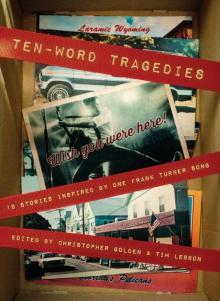 Ten-Word Tragedies
Ten-Word Tragedies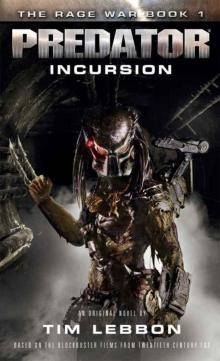 Predator: Incursion
Predator: Incursion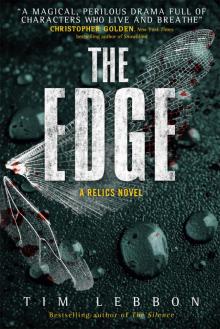 Relics--The Edge
Relics--The Edge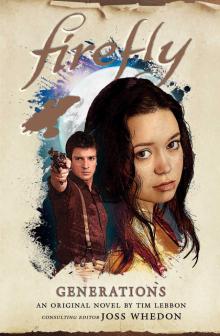 Firefly
Firefly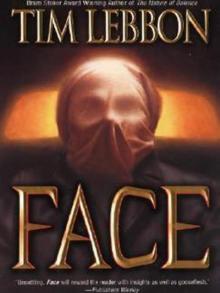 Face
Face Generations
Generations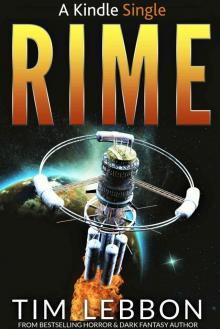 RIME (Kindle Single)
RIME (Kindle Single) Fallen
Fallen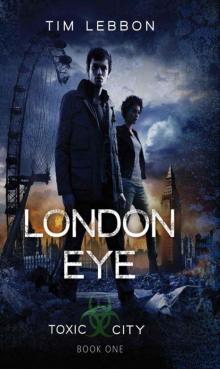 London Eye tc-1
London Eye tc-1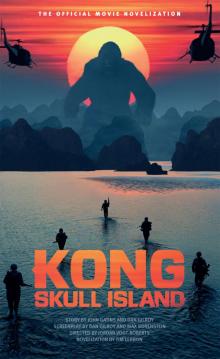 Kong: Skull Island
Kong: Skull Island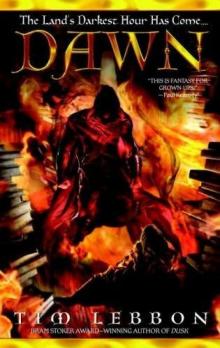 Dawn n-2
Dawn n-2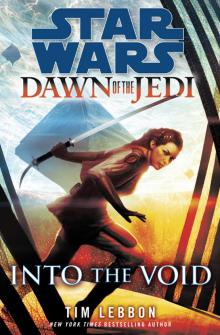 Into the Void: Star Wars (Dawn of the Jedi)
Into the Void: Star Wars (Dawn of the Jedi)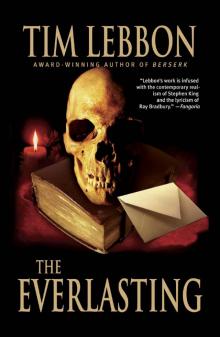 The Everlasting
The Everlasting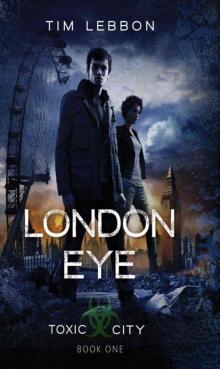 London Eye: 1 (Toxic City)
London Eye: 1 (Toxic City)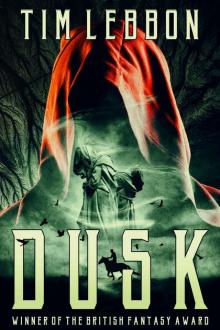 Dusk: a dark fantasy novel (A Noreela novel)
Dusk: a dark fantasy novel (A Noreela novel)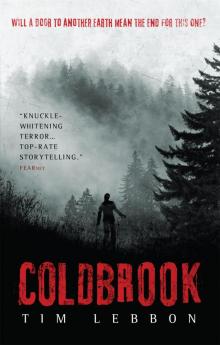 Coldbrook
Coldbrook Alien
Alien Dusk
Dusk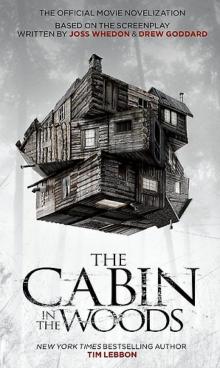 The Cabin in the Woods
The Cabin in the Woods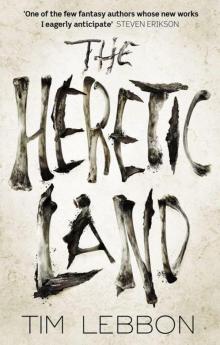 The Heretic Land
The Heretic Land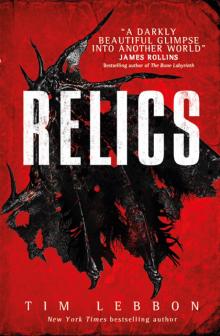 Relics
Relics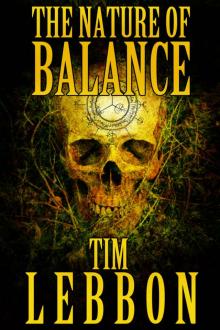 The Nature of Balance
The Nature of Balance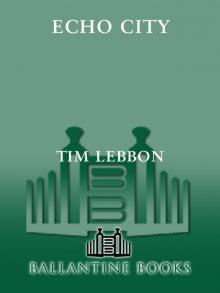 Echo City
Echo City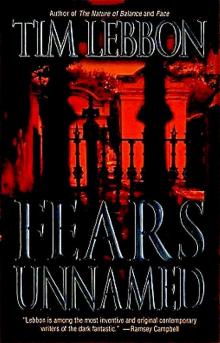 Tim Lebbon - Fears Unnamed
Tim Lebbon - Fears Unnamed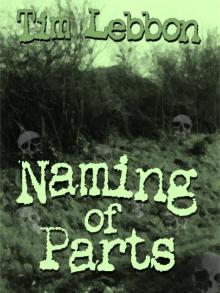 Naming of Parts
Naming of Parts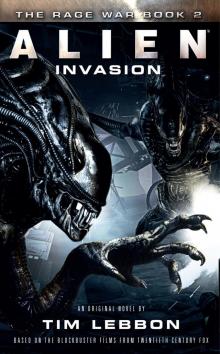 Alien--Invasion
Alien--Invasion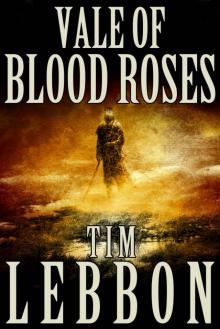 Vale of Blood Roses
Vale of Blood Roses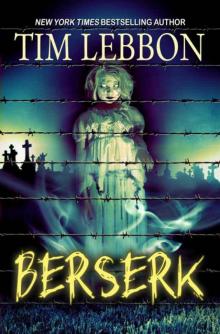 Berserk
Berserk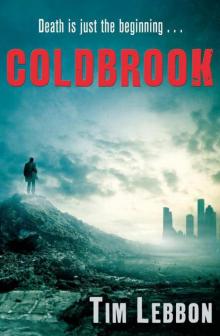 Coldbrook (Hammer)
Coldbrook (Hammer)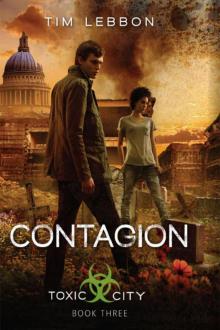 Contagion tc-3
Contagion tc-3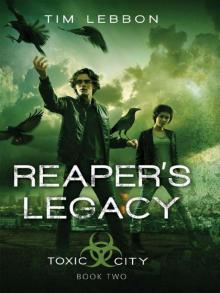 Reaper's Legacy: Book Two (Toxic City)
Reaper's Legacy: Book Two (Toxic City)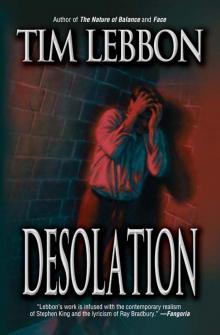 Desolation
Desolation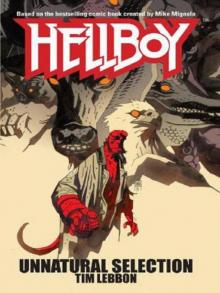 Unnatural Selection
Unnatural Selection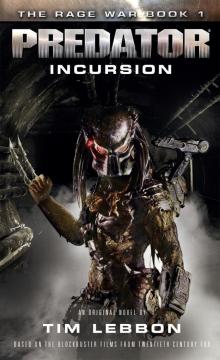 Predator - Incursion
Predator - Incursion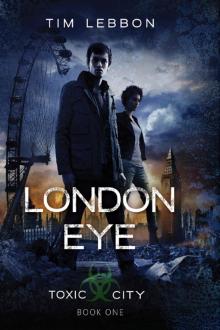 London Eye
London Eye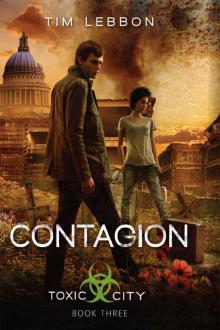 Contagion (Toxic City Book Three)
Contagion (Toxic City Book Three) The Silence
The Silence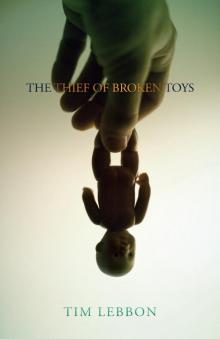 The Thief of Broken Toys
The Thief of Broken Toys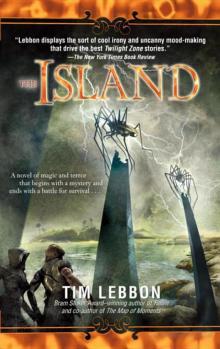 Tales of Noreela 04: The Island
Tales of Noreela 04: The Island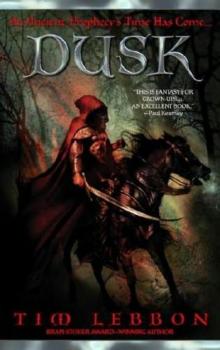 Dusk n-1
Dusk n-1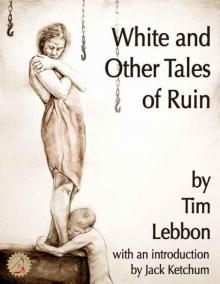 White and Other Tales of Ruin
White and Other Tales of Ruin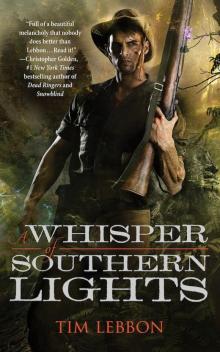 A Whisper of Southern Lights
A Whisper of Southern Lights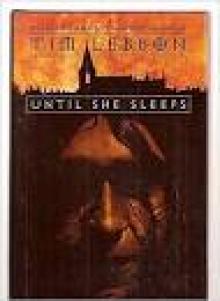 Until She Sleeps
Until She Sleeps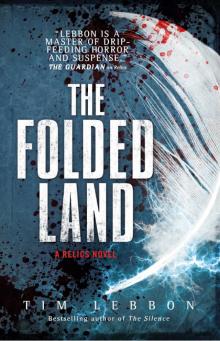 Relics--The Folded Land
Relics--The Folded Land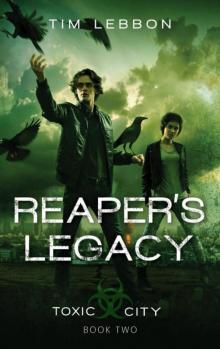 Reaper's Legacy tc-2
Reaper's Legacy tc-2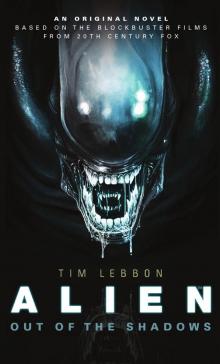 Alien: Out of the Shadows
Alien: Out of the Shadows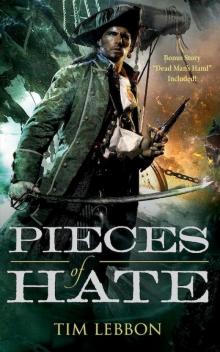 Pieces of Hate
Pieces of Hate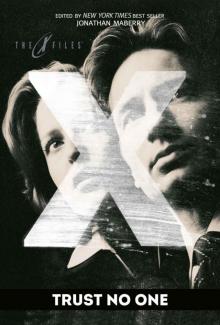 X-Files: Trust No One
X-Files: Trust No One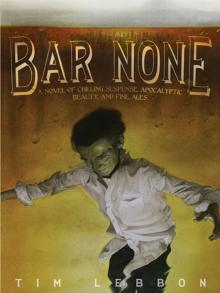 Bar None
Bar None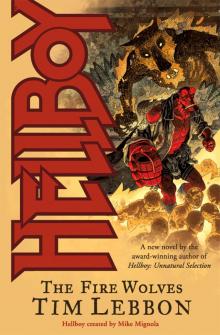 The Fire Wolves
The Fire Wolves